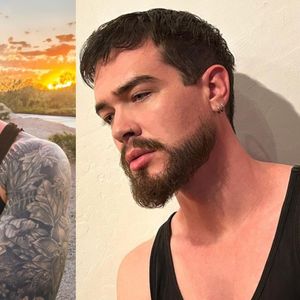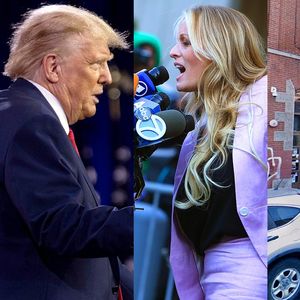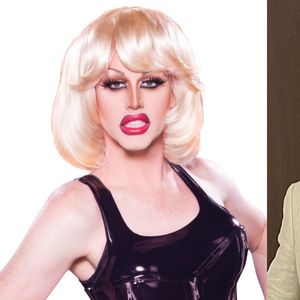CONTACTStaffCAREER OPPORTUNITIESADVERTISE WITH USPRIVACY POLICYPRIVACY PREFERENCESTERMS OF USELEGAL NOTICE
© 2024 Pride Publishing Inc.
All Rights reserved
All Rights reserved
By continuing to use our site, you agree to our Private Policy and Terms of Use.
A bipartisan think tank in Washington has urged the U.S. government to take immediate steps to end the requirement that people with HIV have to declare their status and get a special visa before entering the country.
President Bush announced his intention to do so on World AIDS Day, December 1, but no action has been taken.
The Center for Strategic and International Studies met April 12 in Washington, D.C., to discuss possible ways of relaxing the ban. It produced a report urging action and outlining ways forward.
Coauthor Helene Gayle, formerly of the federal Centers for Disease Control and Prevention, said the U.S. travel ban is inconsistent with the international leadership role on HIV that America has demonstrated it wants by adopting measures such as the President's Emergency Plan for AIDS Relief.
"It is just one more thing where we are out of line and inconsistent with what we are trying to do," she said.
The full report is available at www.csis.org/media/csis/pubs/movingbeyondinadmissibility.pdf.
Coauthor Phillip Nieburg said there is no justification for the law in terms of public health. The HIV knowledge base has grown since 1993, when the ban was imposed, and it is now clear that HIV is not an easily spread contagious disease, Nieburg said.
As for worries about the cost of treating someone with HIV who ends up in the United States stranded or seeking asylum, he said that a blanket ban on anyone with HIV is inherently discriminatory: Other costly chronic health problems are not singled out for a blanket ban but are handled on a case-by-case basis.
A waiver is available to HIV-positive foreigners entering the United States for "designated events," such as last year's Gay Games in Chicago. But it requires individuals to disclose their HIV status, thereby limiting their ability to enter the United States in the future.
The ban was instituted in 1993 against the advice of Louis Sullivan, then-secretary of Health and Human Services, when Sen. Jesse Helms carried legislation to add HIV to the list of communicable diseases barring people from U.S. entry.
Sullivan told the April 12 meeting that the introduction of effective treatments and their greater availability in developing countries makes now "truly a propitious time to try and end these restrictions."
Part of the challenge is that it was much easier to add a clause to the list saying "and this specifically include anyone with HIV" than it will be to replace it with a clause saying "but this does not include people with HIV"--because many legislators will want to ensure that a ban remains on people who genuinely do constitute a danger to public health.
Legislation is likely to apply to both short-term tourist visas and long-term immigrant visas, and legislators are thought to want to continue to ensure that hard questions are asked about an HIV-positive person's ability to pay for his or her medical care if he or she wishes to live and work in the United States.
But the report noted that other wealthy countries with more relaxed policies have not seen a huge influx of HIV-positive immigrants seeking free care.
The simplest way of relaxing the aspect of the ban that affects most people would be for Bush to issue an executive order saying that tourists--people staying for less than 30 days--are exempted from the HIV ban.
But it is thought that a rear guard in the White House is uneasy about the idea of letting people in without any knowledge of their HIV status.
The situation was not helped when, after the international AIDS conference in Toronto last summer, more than 150 HIV-positive people attending the conference chose to remain in Canada and seek asylum, claiming that they feared discrimination or worse in their own countries.
Some commentators have said that the White House will still require people with HIV to declare their status while lifting an automatic ban, at least for tourist visas.
Tom Walsh, a member of the Office of the U.S. Global AIDS Coordinator who was in the meeting's audience, would not specify when the ban might be lifted.
"The process is under way, it is complex, and I wish there was more that I could say," Walsh said. (Gus Cairns, Gay.com/U.K.)
Want more breaking equality news & trending entertainment stories?
Check out our NEW 24/7 streaming service: the Advocate Channel!
Download the Advocate Channel App for your mobile phone and your favorite streaming device!
From our Sponsors
Most Popular
Here Are Our 2024 Election Predictions. Will They Come True?
November 07 2023 1:46 PM
Meet all 37 of the queer women in this season's WNBA
April 17 2024 11:24 AM
17 Celebs Who Are Out & Proud of Their Trans & Nonbinary Kids
November 30 2023 10:41 AM
Here Are the 15 Most LGBTQ-Friendly Cities in the U.S.
November 01 2023 5:09 PM
Which State Is the Queerest? These Are the States With the Most LGBTQ+ People
December 11 2023 10:00 AM
These 27 Senate Hearing Room Gay Sex Jokes Are Truly Exquisite
December 17 2023 3:33 PM
10 Cheeky and Homoerotic Photos From Bob Mizer's Nude Films
November 18 2023 10:05 PM
42 Flaming Hot Photos From 2024's Australian Firefighters Calendar
November 10 2023 6:08 PM
These Are the 5 States With the Smallest Percentage of LGBTQ+ People
December 13 2023 9:15 AM
Here are the 15 gayest travel destinations in the world: report
March 26 2024 9:23 AM
Watch Now: The Daily
Trending stories from our video partner Advocate Channel.
For more videos and shows go to advocatechannel.com.
Trending stories from our video partner Advocate Channel.
For more videos and shows go to advocatechannel.com.
Latest Stories
Over 90% of trans youth live in states pushing anti-trans legislation: report
April 23 2024 10:08 PM
George Santos pulls out of New York congressional race
April 23 2024 7:04 PM
Biden will hammer Trump over abortion bans in Florida speech
April 23 2024 5:00 AM
Tristan Snell, who brought down Trump University, sees conviction in hush money case
April 22 2024 7:36 PM
Joe Biden admin marks Earth Day with major environmental initiatives
April 22 2024 4:18 PM
Texas Gov. Greg Abbott: 'We want to end' trans and gender nonconforming teachers
April 22 2024 4:13 PM
Nonbinary 17-year-old killed two years after being reported missing
April 22 2024 3:46 PM
Trending stories
Most Recent
Recommended Stories for You



















































































